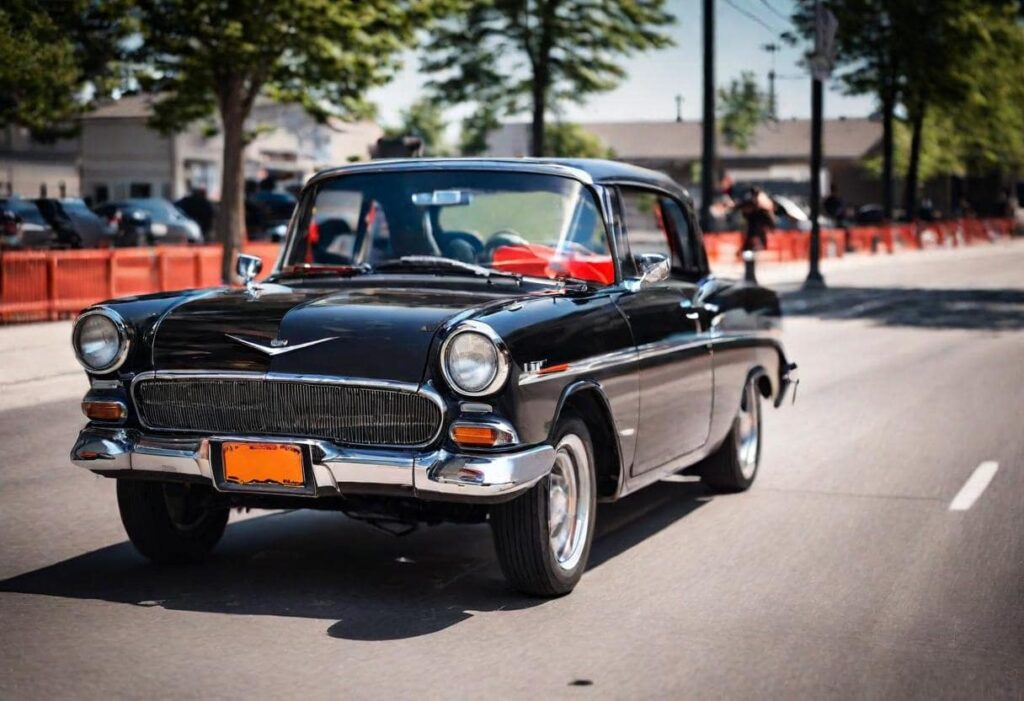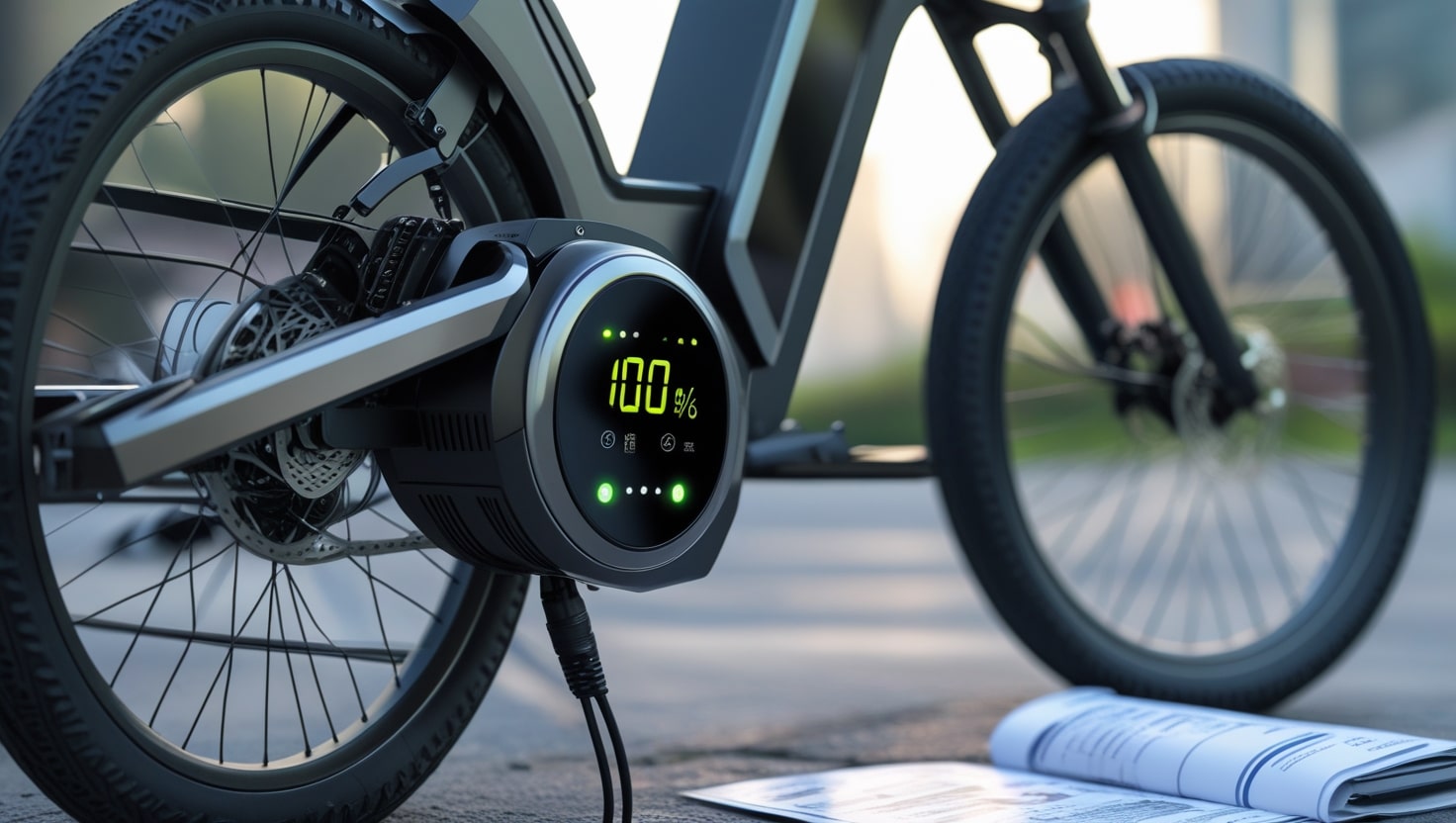If you’ve ever noticed your car suddenly making a loud, motorcycle-like sound, it’s likely a concern that should be addressed without delay. This strange noise can be an early indication of an underlying problem that, if left unchecked, has the potential to turn into an expensive repair. Hearing your car revving like a high-decibel engine might seem harmless at first, but it’s a symptom of something bigger. From my experience, paying attention to such sounds immediately can save both time and money.
The causes of this noise could range from the belt, exhaust, or engine—all essential components in the car’s system. Each of these parts is crucial to smooth operation, and when they start to falter, they often trigger this noticeable sound. What’s challenging is that these are complicated areas, where even a small issue in the exhaust or engine can lead to a revving effect that mimics a motorcycle. Whenever you detect such symptoms, it’s best to get it checked immediately to identify the culprit and prevent more serious damage. Let’s dive into more about “why does my car sound like a motorcycle”
Possible Sources of Why does my Car Sound like a Motorcycle
The Exhaust System
The exhaust system in your vehicle plays a primary job by transporting exhaust gases from the front to the rear, and if any component within this system is subject to damage—whether it’s the muffler, header, pipe, or resonator—it can cause your car to make a loud noise, almost akin to a motorcycle. When any part of the exhaust system breaks or a small leak appears, the sound often becomes louder, especially as you accelerate. Based on experience, even a minor issue in this area can quickly make your car liable to emit noise that’s hard to ignore, with each piece contributing to the overall function and sound.
The Car Belt
A malfunctioning belt can be a key factor in making your car sound louder than normal, especially during acceleration and braking. Even if the noise it produces isn’t noticeable to your ears right away, the sound often increases over time as the issue worsens. When a lift blocks the movement of the belt, it can disrupt the car’s overall performance. This problem can lead to more noise being emitted than you might expect, often louder than the sound your tires make, and should be addressed since the belt is a vital part of smooth operation.
The Drivetrain
The drivetrain is essential for your vehicle as it transfers power and motion from the engine to propel it forward. This system includes components like the transmission, driveshaft, differentials, axle, and clutches—all crucial parts that keep your car or truck smoothly moving. However, if you’re riding an old or worn car, these parts can wear out, causing a revving sound similar to a motorcycle when you accelerate. It’s best to have a mechanic check it before the problem worsens to prevent further issues.
Related: How to Start a Motorcycle Club

The Engine
The engine is perhaps the most critical component of your vehicle—without it, the car simply won’t work. Its function is crucial as it allows your vehicle to operate, and unfortunately, it’s often the main culprit behind unusual and noisy sounds. This is because an engine is a complex machine with moving parts like pistons and bearings that work together to create power. The valves open and close to let air and fuel flow in, producing the kind of sound we typically hear. However, as engines age, this process can become less healthy and may start to generate unpleasant and even loud noises, especially in an old car.
If the engine has damage or wear to components like bearings and pistons, these sounds can worsen, making the entire experience rougher. A typical engine today is designed for efficiency, but even modern engines can get noisy over time due to the design and natural wear. When this happens, these types of sounds become more noticeable and can make your car’s engine resemble that of a motorcycle. If left unchecked, these issues may produce more serious problems, impacting the engine’s ability to run smoothly and efficiently.
Loose Or Damaged Parts
If you hear a rattling or clunking noise from your engine, it may be due to loose or broken parts in the surrounding systems. For example, a heat shield that’s loose can rattle against other parts, creating an unsettling and loud sound often mistaken for a motorcycle engine.
Another possibility is an issue with the accessory drive belt, which connects the engine to other parts like the alternator or power steering pump. When this belt becomes worn, cracked, or misaligned, it can cause a whining or grinding noise that adds to the disturbance. Regularly checking these possibilities can prevent unpleasant sounds and maintain a smoother ride.
Related: Does CarMax Buy Motorcycles?
Transmission Problems
Transmission issues can sometimes manifest as a motorcycle-like noise. When certain parts of the transmission, like gear bearings, become worn-out, they can cause a whining or grinding sound. This noise is often more noticeable when accelerating or shifting gears, as these actions put extra pressure on the transmission. Although less frequent than other car troubles, these issues shouldn’t be ignored, as they can lead to bigger problems if left unchecked.
Wheel Bearing Failure
A failing wheel bearing can produce a loud noise that’s often confused with a motorcycle engine. This type of sound isn’t related to the engine at all, but rather to worn-out bearings in the wheel. As the bearing wears down, it can start to make a growling or grinding noise, which tends to get louder when you’re turning corners. If you notice this noise getting worse quickly, it’s likely due to a worn wheel bearing that needs attention.
How to fix a motorcycle-sounding car
If your car is making a loud noise similar to a motorcycle, there could be several problems causing this, from minor issues to large ones. First, it’s essential to determine what kind of problem you’re dealing with. Some solutions can be simple, while others may require more specialized knowledge.
You don’t have to fix the whole vehicle on your own. Instead, take it to a repair shop where an expert can help. Cars are complex machines, and attempting a DIY fix could make things worse.
To stop the noise and get back to a quieter ride, here are some tips: Regularly check your car for unusual sounds, and don’t ignore anything that seems out of place. Listening to your car can alert you to issues early on.
Depending on the severity, an experienced company specializing in car repairs can look at it, providing specific repair methods. Taking action quickly will greatly help in keeping the noise from worsening and might even save money on further repairs.
Related: How Much Does Motorcycle Weigh

Fixing the noise from the belt
If your car’s belt is causing problems, there is likely a problem with it. Fortunately, this is an easy fix that won’t cost much, and a new belt should get your car running smoothly again.
Drivetrain or Engine
When your car makes unusual noises, the engine or drivetrain may be malfunctioning, which can become quite expensive to repair. Each part in a vehicle already costs a lot, so any extra problems can quickly add up and push you over budget. The longer it’s left unrepaired, the higher your costs may go, making it essential to address the issue promptly. Trying to work on the car yourself isn’t a good idea, as it can worsen the problem and even put you at risk. Instead, consult a certified mechanic who has the expertise to handle these types of issues safely

Engine Performance Evaluation
A thorough examination of your vehicle’s engine performance is essential to identify the cause of a motorcycle-like noise. In this section, we will examine three key areas to examine.
Analyzing Engine RPM (Revolutions Per Minute)
Engine RPM is an essential measure of engine speed, and abnormal changes in RPM can signal hidden problems. Here’s what to keep in mind:
Idle RPM: Check your car’s manual to find the specified RPM range for idle. Any deviations from this range, like higher-than-normal RPM or a rough, inconsistent idle, may suggest underlying issues. These could include vacuum leaks or a faulty idle air control valve, which impacts engine smoothness.
RPM Under Load: Observe how the engine behaves when you accelerate. If the RPM increases rapidly without a matching speed increase, it might point to transmission issues or a slipping clutch. Such problems can prevent the engine from transferring power effectively under load and are often a sign of more complex issues needing attention.
Assessing Fuel Injection System
The fuel injection system plays an important role by providing the ideal air-fuel mix for efficient engine performance. Here’s how to evaluate it:
Fuel Injector Health: Faulty injectors can lead to bad fuel delivery, causing incomplete combustion and a sputtering engine. A mechanic can test the injector’s spray pattern and flow rate to ensure it’s working properly. Any issues here may contribute to rough engine sounds.
Fuel Filter Condition: A dirty fuel filter can restrict fuel flow to the engine, leading to a lean fuel mix (too much air, not enough fuel). This can make the engine run rough and cause unusual noises. Regularly checking the condition of the filter helps maintain smooth engine operation.
Identifying Engine Misfires
An engine misfire occurs when one or more cylinders fail to fire properly, causing the engine to run unevenly. It can also make a screeching or screeching sound like a motorcycle. Here’s what to look for:
Check Engine Light: A flashing or illuminated check engine light is a key sign of a potential misfire. When this happens, a mechanic can use a scan tool to retrieve diagnostic trouble codes (DTCs), which can point to the related issue in the engine.
Engine Performance: An erratically idling engine or a car that hesitates during acceleration may also indicate misfires. Such signs of poor performance often mean there’s trouble that needs attention.
Considering Catalytic Converter
A catalytic converter plays a key role in reducing harmful emissions from your car’s exhaust. However, if it gets damaged, it can also cause abnormal engine noise. Let’s examine how a converter can be connected to your car’s motorcycle-like sound.

Understanding Converter Function
The catalytic converter plays a pivotal role in your vehicle by helping to reduce harmful pollutants in the exhaust before they leave the car and enter the atmosphere. Its job is to turn these harmful emissions into less dangerous ones, lessening the environmental impact and keeping the air more clean. Think of the converter as a guardian that fights against pollution, ensuring that even though cars produce emissions, their effect on the environment is minimized.
Examining Converter Integrity
A number of factors can weaken the effectiveness of a catalytic converter:
Physical Damage: Physical damage to the converter’s housing can happen if the car takes a hard hit to the undercarriage. This can lead to rattling inside the converter or even exhaust leaks, both of which may create unusual sounds.
Internal Clogging: Fuel and oil deposits can build up inside the converter over time, causing internal clogging. This restricts exhaust flow and makes the engine work harder, resulting in a throaty or growling sound.
Overheating: Running the engine with excess fuel can cause the converter to overheat, damaging the catalyst and lowering its effectiveness in filtering out emissions.
Related: How Often Oil Change for Motorcycle
Detecting Converter Issues
Here are some signs that may suggest a problem with your catalytic converter:
Strong Rotten Egg Smell: A strong rotten egg smell coming from the exhaust can be a sign of a failing converter. The converter works to convert sulfur-containing compounds in the gas to less offensive odors. When it malfunctions, these odors can become noticeable.
Reduced Engine Performance: A clogged converter can hinder exhaust flow, lowering engine power and efficiency. This reduced performance might make the car feel sluggish, as the converter struggles to keep up with the demands of the engine.
Illuminated Check Engine Light: Modern cars have sensors to monitor the converter’s status. A malfunctioning converter can trigger the check engine light, indicating that it’s no longer working at full capacity.
Possible Solution Of Car Engine Noise Like A Motorcycle
Your car is not going to roar like a motorcycle! That loud noise indicates a problem that needs to be checked. Here’s what to do to fix it:
Repair Exhaust Leak
A leak in the exhaust system can make your car produce a loud noise similar to a motorcycle. This happens when there’s a hole or crack in the pipes or muffler, allowing the sound to escape directly into the air instead of being muffled by the system. The gasses from the engine flow to the back of the car, but if any part is damaged, noise escapes easily. To fix this issue, locate the spot where the exhaust is leaking and repair or replace the affected part.
Prevent Muffler Damage
The muffler plays a key role in silencing the engine noise as it exits the car. When the muffler is damaged, rusted, or has holes, the car will sound much louder than usual. To avoid this, perform regular checks for any signs of wear. Catching damage early can make a big difference. If needed, replacing the muffler with a new one is often the best solution to greatly cut down on noise and bring back the peace you’re used to.
Faulty Exhaust Manifold Gasket
A faulty gasket between the engine and the exhaust manifold can lead to leaks and increase noise levels, making your car sound noisy. The gasket seals the gap to prevent exhaust from escaping, but over time and with exposure to heat, it can wear down. Replacing this part is essential to restore the seal and help your car run more quietly and smoothly. A new gasket will allow the engine to operate more silently, reducing the chances of that motorcycle-like sound.
Related: Why Are My Bike Brakes Squeaking?

Cracked Exhaust Manifold
A cracked exhaust manifold can often be the main culprit behind unusual noise in your car. The manifold is important because it collects gases from the engine’s cylinders and transfers them to the exhaust system. If a crack occurs, it can cause excessive noise and reduce the performance and power of your car. While repairing or replacing a damaged manifold can be a bit complex, it’s vital for stopping the noise and ensuring top performance from your vehicle.
Aging Belts and Pulleys
As the engine ages, its belts and pulleys can become worn or misaligned, leading to squealing or rattling noises. These parts operate essential functions like the alternator, air conditioning compressor, and power steering pump. When they begin to wear out, the noise can increase overall, making the car sound louder, even similar to a motorcycle. Replacing old belts and pulleys can eliminate these noises and help the engine run smoothly, restoring peace to your drive.
Conclusion
When your car begins acting wonky, it’s often worth getting it inspected by a qualified mechanic. Taking it to your local auto dealer can give you an idea of how long you have before a fix is needed, especially if you want to avoid future problems.
Whether your vehicle is a specific brand or model, getting help from experts who understand automotive issues is essential. You might need to alter individual parts, but only a professional can ensure the job is done right.
In a perfect world, we could just change the whole vehicle, but for now, a mechanic’s assistance is invaluable.
Related: Best Motorcycle for Tall Riders
FAQs
1. Why Does My Car Sound Unusually Loud, Similar To A Motorcycle?
If your car sounds unusually loud, almost like a motorcycle, it likely points to an issue with the exhaust system. A leak or damage in this area can amplify the noise, making it much louder. Inspecting the exhaust for any cracks or holes and repairing them promptly is crucial to reduce the noise and ensure safety while driving. Fixing exhaust problems quickly is not only vital for sound reduction but also for keeping your car running smoothly and safely.
2. Can Engine Problems Cause My Car To Sound Like A Motorcycle?
Yes, engine problems can make your car sound like a motorcycle. Issues such as exhaust leaks, misfiring cylinders, or a damaged muffler can amplify the noise, creating a distinct roar that resembles a motorcycle. Diagnosing and fixing these problems promptly is crucial to avoid further damage. Addressing these issues quickly helps keep your car running smoothly and reduces the chance of costly repairs.
3. What Should I Do If My Car Starts Sounding Like A Motorcycle?
If your car starts sounding like a motorcycle, the first step is to inspect the exhaust for any leaks or damage. Next, check for any loose parts or signs of engine trouble. It’s important to address these issues promptly by consulting a professional mechanic to prevent further damage and ensure safe driving conditions. Taking action early helps keep your car in good shape and minimizes the risk of expensive repairs later.








